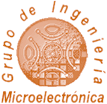
Mapa Web

Localización

Noticias

Info Santander

Gestión BD

|
| GIM>Investigación>Publicación |
| PUBLICACION |
| |
| Ficha completa |
| Título: | Integration of Domain-Specific Models into a MDA Framework for
Time-Critical Embedded Systems |
| Tipo: | Publicacion en Proceedings o Actas internacionales |
| Lugar: | Sixth Workshop on Intelligent Solutions in Embedded Systems WISES 08 |
| Fecha: | 2008-07 |
| Autores: |
Javier Barreda
Pablo Pedro Sánchez
Jorge Ocón
|
| Líneas: |
Diseño y verificación de sistemas embebidos HW/SW
|
| Proyectos: |
ITEA 04006 MARTES
|
| ISBN: | |
| Fichero: |
|
| Resumen: | The Model-Driven Architecture initiative (MDA) of the Object Management Group
(OMG) proposes a development paradigm that can be used to deal with the increasing
complexity of real-time embedded systems. MDA is based on developing both platform
independent and specific models from which executable code can be generated in an
automatic or semi-automatic way. In most cases, engineers use Domain-Specific Models to
describe the system and the challenge is to integrate these specific models into a general
MDA methodology. Sometimes, the MDA infrastructure includes applications that can
evaluate the real-time system performance, an essential aspect of the time-critical embedded
system design.
This paper presents a real-time embedded system development methodology based on
MDA and a Domain-Specific Model oriented to time-critical system modelling. The toolset
supports model transformations and performance analysis. The performance analysis is
based on the PERFidiX technology, a SystemC-based framework for system evaluation.
The main contributions of this paper are the exploration of techniques to integrate
Domain-Specific Models into an MDA-based methodology and the relations of these
techniques with the SystemC code generation and performance analysis processes. |
|
|








